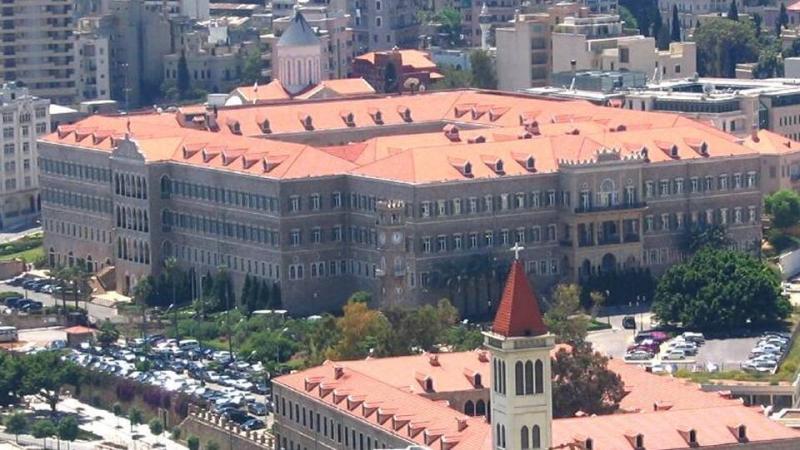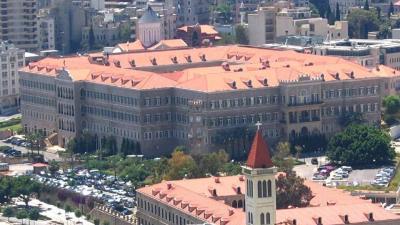The change in the political entity appointing the ministers for the "Energy" and "Economy" portfolios has complicated the chances of announcing the government formation presented by the appointed Prime Minister Najib Mikati to President Michel Aoun last Thursday, which has been "the main file causing the controversy," according to opposition parliamentary sources affiliated with the "Free Patriotic Movement." Mikati proposed a government lineup that included fundamental amendments to the energy portfolio, which has traditionally been occupied by a minister from the "Free Patriotic Movement" or one who has the backing of the President. Additionally, the economy and trade portfolio was also notably altered, as it was given to the "Tashnag" party, which is close to the President as well.
The sources told "Asharq Al-Awsat" that the energy ministry file "mixed things up, even though the lineup was serious, and Mikati coordinated with various political forces that did not declare their opposition to participating in the government." The sources emphasized that Mikati quickly moved to the lineup "based on the invitations of the political forces he met during the non-binding parliamentary consultations at the beginning of the current week, including the Free Patriotic Movement."
Moreover, the sources stated that the handling of the lineup, which does not differ much from the previous formation regarding the distribution of portfolios among sects and political forces, "showed that there is objection to changing the share of the energy and economy ministries, as a Sunni minister was named for this portfolio, contrary to the past where it was under the share of the Free Patriotic Movement." The sources added, "The movement said it does not want to participate in the government," questioning, "Why the insistence then on the energy portfolio and the objection to the political entity that appoints its minister?"
They indicated that Mikati would not present a new lineup before President Aoun responds to the recently submitted formation, in accordance with the constitutional norms in practice in the country, adding that "the ball is now in President Aoun's court."
Ministers close to the "Free Patriotic Movement" have held the energy portfolio in successive governments since 2009, which is currently the most controversial file, as a large part of the public deficit is attributed to the failure of Lebanon's Electricité du Liban. Electricity is cut for over twenty hours daily in some areas, and all attempts to approve a new electricity plan have failed.
The portfolio holds significant importance at this time due to the Lebanese stake tied to the ministry, including the extraction of gas and oil from territorial waters, establishing new power generation plants, raising electricity tariff rates, in addition to a plan for alternative electricity production from dams, wind, and solar energy—files Lebanon has been discussing with the international community for five years. The international community is calling for fundamental reforms in the sector, including its governance and the appointment of a regulatory authority.




